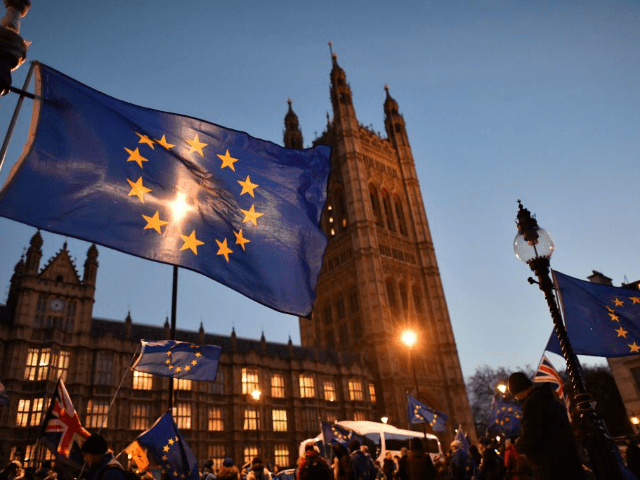Almost half of the Electoral Commission has been urged to resign after an investigation found that members of the board responsible for ensuring the integrity of elections had made anti-Brexit statements.
While the elections watchdog requires members to serve under strict rules that demand they “act at all times” to uphold the body’s impartiality, the Sunday Telegraph discovered that four out of ten of the commission’s members have spoken out about the referendum result since the 2016 vote, condemning Brexit in every case.
Brexiteers have urged the commissioners to step down, as the body has been dogged with accusations of bias after it refused to investigate any alleged wrongdoing by Europhile campaign groups while turning a forensic eye to the official Leave campaign.
Leavers Declare EU-Linked Electoral Commission ‘Unfit to Regulate Our Democracy in the Age of Brexit’ https://t.co/DLIM6slxDc
— Breitbart London (@BreitbartLondon) November 3, 2017
Former minister Priti Patel, whose formal complaint to the watchdog over alleged illicit activity by the Remain campaign was rejected earlier this year, said the revelations serve as “clear evidence” that the commission’s “standards and impartiality” have been undermined, and urged the four watchdogs to “relinquish their positions” while “independent people” be brought in to replace them.
Three months after he was nominated the Electoral Commission’s next chairman by ‘centrist’ Speaker John Bercow, Sir John Holmes disclosed that he “regret[ted] the result of the referendum” in a speech complaining of the panoply of Eurosceptic nonsense about the EU” from pro-Brexit figures.
Former Labour MP Bridget Prentice, another commissioner, said she thought Tony Blair was “spot on” after the former prime minister said Brexit was not “inevitable” and that the vote could be overturned.
The Telegraph reported commissioner Lord Horam as having made a number of anti-Brexit remarks in the House of Lords since the vote, including saying there was “great logic” in another peer’s assertion a second referendum was needed to allow people to rethink the issue after they are made to see that “it will make sense not to leave the EU”.
New Remain Campaign Urges Young People to Emotionally Blackmail Grandparents over Brexit Support
https://t.co/MOaYdetQPo— Breitbart London (@BreitbartLondon) October 25, 2017
One month after Britain voted to leave the EU, David Howarth — a commissioner since 2014 — penned an article in which he questioned whether it was “morally acceptable” to begin the withdrawal process Article 50, suggesting the referendum results were illegitimate because most young people supported Remain.
Writing in E! Sharp, a globalist, anti-populist online magazine focusing on European affairs, the former Lib Dem MP said the referendum produced a result with an “in-built ‘best before’ date”, stating: “Leave’s majority will have been reversed merely by the process of Leave voters dying and new Remain voters reaching the age of 18 in as little as three and a half years and within ten years at the very outside.”
The claim that the referendum result was invalid because young voters showed a heavy preference for staying chained to Brussels while many older people wanted out of the bloc has been embraced by numerous anti-Brexit figures, some of whom produced anti-white, anti-elderly screeds in which they crowed about pensioners dying — with one Europhile journalist even gleefully pondering the implications of a “cold winter” for ‘gammon-faced white men”.
Tony Blair Demands Labour Get Behind Second EU Referendum, Refuses to Rule Out a THIRD https://t.co/bEJxNpSn0T
— Breitbart London (@BreitbartLondon) January 4, 2018
While Howarth, like a number of fanatic Remainers who have cast doubt on the Brexit vote’s validity, highlighted claims that Leave supporters are “uneducated” in comparison to Remainers — a figure dealing with formal education level when the drive to send huge percentages of the public to university is relatively new — the European Commission has spent hundreds of millions of taxpayer Euros promoting the EU in classrooms.
Months after Britons voted to leave the bloc, Eurocrats advertised the Commission was embarking on a £350,000, four-year propaganda programme teaching UK schools of “the benefits and opportunities that stem from European citizenship”.
Chairman of the European Research Group of pro-Brexit Conservative backbenchers, Jacob Rees-Mogg, said the Telegraph’s revelations are “very serious” given the need for Britain’s elections regulator to be impartial.
“Anyone who has called for a second referendum or made political statements on Brexit ought to recuse him or herself from any decision with regard to the referendum,” he told the Sunday newspaper.

COMMENTS
Please let us know if you're having issues with commenting.